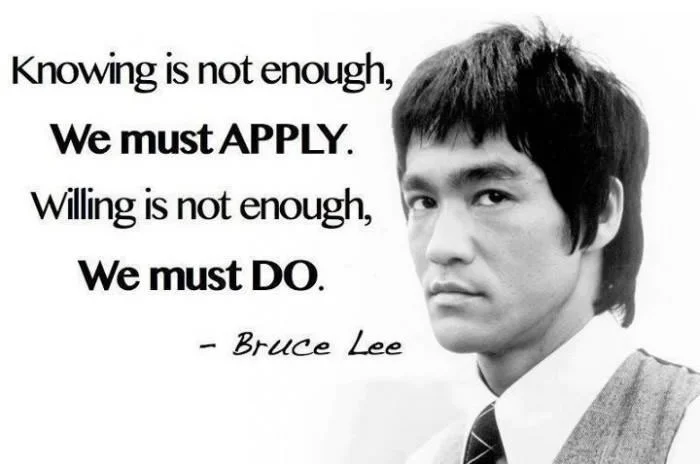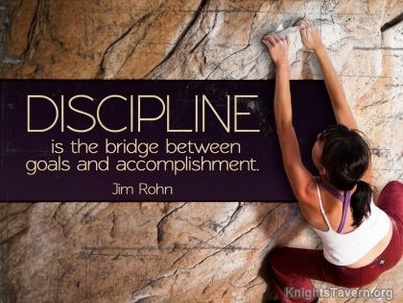The most important resolution that I self-prescribe year after year is to become a better version of myself. However, this isn’t a subject that I only revisit at the beginning of each new year; it’s one that I remind myself of at the beginning of each day. I have a few broad goals written down (more like mantras actually) that I read every morning to keep me on the path to becoming the best version of myself: increase intelligence, upgrade performance & athleticism, strengthen my relationships, advance my career, grow my brands, enhance my musical abilities, and relax more (that last one is becoming more of a challenge). I have always thought of being healthy (improving performance & athleticism) as an important part of this equation of ‘upgrading myself’, but recently I have come to realize that being the healthiest version of yourself is the necessary foundation to being the best version of yourself in every other aspect of life.
Working out and eating “healthy” have been a part of my life for many years now; however, my competitive nature and desire to self-improve have caused my inner-voice to constantly tell me, “you can do better.” This has driven me to seek out the best, most effective ways to work out; to figure out what foods, beverages, and supplements give me the best results; to eliminate bad habits and avoid environments that deter me from being as healthy as possible (True Life: I Am A Bio-Hacker with OCD). As I have continually improved my health over the years, I have noticed the compounding effect it has made on every other aspect of my life.
"Be like water." ...and drink plenty of it too.
No matter what your New Year’s resolutions or life goals are (or even your to-do list for today), living healthier will make it much easier to accomplish them all - long-term, short-term, and anywhere in between. I have found that by being healthier, my other goals seemingly accomplish themselves. An important realization I made somewhat recently is that being physically and mentally/emotionally healthy are different sides of the same coin. Improving one side will positively and proportionately impact the other.
The most obvious example of this is when I started fueling my body with the right types of foods, such as grass-fed meats, wild-caught fish, lots of cruciferous vegetables, healthy fats, etc. It has made a huge impact on the way I feel, look, think, and perform. This advice may seem trite, but it is truly sage and cannot be over-stated: optimizing your diet is the cornerstone of optimal health. If eating certain foods makes it easier to build muscle (as an example), doesn’t it make sense that certain foods would make your skin glow, make your bones stronger, and make your brain function at peak levels?
Another example is exercising on a regular basis; in my case, going to the gym first thing in the morning four to six days a week. This has greatly improved my mood, increased my energy, and enhanced my focus throughout the entire day. Not only am I reaping countless rewards from the physical aspect of weight-lifting and high-intensity interval training, but my mental and emotional health have been upgraded as well. Furthermore, I now fall asleep faster and sleep better than ever before - again, providing multiple physiological and psychological benefits - which I attribute to my eating and work-out habits.
If you were living with more energy, in a better mood, thinking more clearly, looking your best and at your most confident…what could you accomplish? When you are taking care of your health, achieving a “flow” state will be much easier to achieve. I’m looking forward to discussing flow states in more depth in future articles; but for me, being in a flow state basically means being “in the zone”. Time seems to stand still, my focus is laser-like, and I accomplish exponentially more while in this frame of mind. Physiologically, my heart rate variability is low, my breathing is steady, and my brain wave patterns are in an alpha state. I am determined to remain in this state as often as possible because of all that I can accomplish with this sustained focus and energy. From my research and personal experience, certain foods make it easier to achieve this state of mind (like the ones I mentioned above) while others inhibit your ability to reach it at all (namely, processed and refined foods, sugar, MSG, and many more).
Furthermore, whether you are a sales-person hustling to make a quota, or a CEO making crucial decisions day in and day out, it’s hard to inspire, motivate, and lead others when you are not healthy. When I’m taking proper care of my body, I have more energy and more confidence, which creates a positive feedback loop (having more of one feeds the other and visa-versa). I used to have recurring days where I would slack off on my diet and exercise. In Western culture, these are traditionally called “the weekends”. Have you ever had a case of the Mondays? I would consistently feel the effects of the poor choices I made on Saturdays and Sundays at the beginning of every week manifested as being in a crappy mood, having a difficult time being ‘present’, experiencing “brain fog”, an inability to solve problems and think clearly about things that would be a piece of cake (no pun intended) on other days, etc. Since my days of regular “cheat weekends”, I eventually cut back to a “cheat day”, and then a “cheat meal”. I’m now at a point where I care more about looking, feeling, and thinking my best than I do about eating pizza and ice cream (read: sugar and processed foods).
Getting to the point I’m at today did not happen overnight, and it didn’t happen by accident either. Achieving optimal health involves setting goals that are aligned with my over-arcing vision of being a better version of myself than the day, month, and year before. The best goals you can set for improving your health (or just about anything else in life) should be SMART goals. A SMART goal is:
- Specific
- Measurable
- Attainable
- Results-focused
- Time-bound
I used to not set SMART goals for my fitness and nutrition, and my health was stagnant (at best) as a result. “I want to be stronger” or “I want to be more healthy” are not SMART goals. “I want to have more lean muscle” is not a SMART goal. “I want to run every day” or “I want to bench press 500 pounds” are admirable goals, but not SMART goals. Remember that if something is measurable, it is manageable, and therefore it is improvable. But you will disappoint yourself and stray from your path if you are not being realistic and specific as well.
One of the SMART goals I set for myself in 2014 was to add one inch to my calf muscles by the end of the year (don’t judge, I have chicken leg genetics). This is a SMART goal because it focused on a specific part of my body/health. There was a defined measurement I was striving for that was attainable with hard work and the right action plan. Working towards this goal (even if I hadn’t accomplished it) would definitely yield results, and I gave myself a specific time-frame to reach it.
Everyone’s goals will be different because we are all at different levels of fitness, have different genetic makeups, different schedules, and so on. An important thing to remember is that becoming the best, most healthy version of yourself is not necessarily a destination - it is more of a lifelong journey. Once you have created your SMART goals that are aligned with your vision, it is essential to create an action plan in order to successfully execute these goals. First, write everything down in a journal or an app of your choice - whichever is going to be easiest for you to continue using. Putting goals, plans, and deadlines in writing will make you much more likely to follow through on them. Next, I find it useful to break down my goals into smaller chunks, which allows me to track my progress more easily and leverage the power of small wins. Set specific dates and figure out what tools you need to track your progress (i.e. measuring tape, scale, heart rate monitor), and don’t be afraid to celebrate reaching a benchmark or milestone. Staying positive is not only a huge part of accomplishing goals, but also vital to being healthy in general.
Visualize accomplishing your goal(s) as often as possible. Like I mentioned earlier, I begin every morning reading over my daily mantras (which are broken down into goals) with positive affirmations. What will really make your goals even easier to accomplish is implementing good habits while eliminating bad ones - it needs to be a lifestyle change. Part of your action plan should involve creating an environment conducive to sustaining these new habits. Allow me to give you a brief example of how to put what you’ve just read into action:
Let’s say your SMART goal is to lose 3 percent body fat in 2 months - you’ve already taken the first step by making your goal specific, measurable, attainable, results-focused, and time-bound! I would then break this down further - lose 1.5% in 1 month…lose 0.75% every 2 weeks - and write down the corresponding dates in a calendar. Next, you’ll need a way to measure your progress (either a scale that measures body fat percentage using bioimpedance analysis or a caliper) and a place to write it down. Then you’ll need to implement some good habits, such as going on a 30 minute jog around the block first thing every morning, followed by eating a healthy breakfast with a cup of coffee. Creating an environment that sustains these good habits (while extinguishing bad ones) could involve putting your running shoes and workout clothes in an obvious place before you go to sleep so that you’ll see them right when you wake up; throwing away junk foods and only stocking your fridge with fresh, healthy foods from the farmers market for your breakfast; and setting up your coffee maker so it’s ready to go when you need it.
An old Japanese Proverb
From time to time, you may need to revisit, evaluate, and if necessary, adjust your goals. If you are completely lost, utilize a coach or professional. If that’s not an option for you, use a support team and ask for help. You could even add a social element to your goals - research shows that most people are more likely to accomplish a goal if it is made public - have your friends hold you accountable. You must also ask yourself, “How is this rewarding for me?” It’s a lot easier to accomplish something when you’re passionate about it. The goal must motivate you!
Does having more energy and focus throughout the day sound rewarding to you? Is looking and feeling your best something you’re passionate about? Does having the ability to accomplish more in a day more easily while being in a better mood motivate you?! I would like to challenge you to be a better - no - the best version of yourself in regards to every aspect of your life. This seemingly daunting task can be accomplished by first looking inward. When you are ready to improve your mental and physical health, the rest will begin to fall into place.
Erik's 3 year progression - a work in progress (not pictured: my huge calf muscles)






